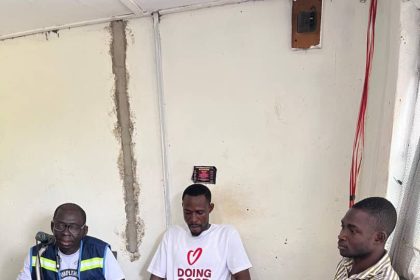Madam Winnie Osulah, Lead-Gender Integration, AGRA, has called for an urgent shift from drafting gender-responsive agricultural policies to implementing them with precision.
She said while many African countries had drafted gender-responsive agricultural policies, most of them remained either outdated or unimplemented, creating a widening gap between policy intentions and real impact on women farmers.
“Governments must target the right audiences and build capacity to translate policy into measurable outcomes,” she added.
Madam Osulah was speaking at a convening organised by AGRA in Accra, on the use of gender in the Agriculture Scorecard in Ghana.
It was under the theme, “Enhancing Gender-Responsive Decision-Making in Agriculture through AGRA’s Gender Mainstreaming in Agriculture Scorecard.”
Madam Osulah said the scorecard examined governments’ performance across three thematic areas: the enabling environment, government commitment, and government capacity to determine how well agricultural policies responded to gender issues.
She said it was also intended as a diagnostic and roadmap, enabling governments and partners to prioritize interventions that will produce measurable, gender-responsive outcomes in agricultural productivity and food systems’ resilience.
She said women constituted roughly 80 per cent of Africa’s agricultural labour force, yet their needs were frequently overlooked in policy and programming.
“If women’s needs are not considered, we are not unlocking the full potential of African food systems,” she added.
She said Ghana scored 72 per cent on the enabling environment, indicating relatively strong policy presence, but this fell to 56 per cent on capacity to implement those policies.
Madam Osulah added that Government commitment hovered near 60 per cent, which was insufficient to ensure policy documents moved off the shelf and into meaningful change.
“We are not yet at the threshold we consider gender responsive. To declare a country gender responsive, it must score above 75 per cent in all three categories,” she added.
She urged a step-by-step approach, by identifying the weakest area in a country’s score, rapidly building capacity there, and then begin phased implementation with targeted audiences, particularly women smallholder farmers who would benefit most.
She called for practical investments in training, institutional strengthening, and monitoring systems that tracked whether policies changed lives.
She stressed that, “Policy formulation must be matched by deliberate, targeted implementation, or the continent’s risks leaving most of its agricultural workforce behind.”
Mrs. Faustina Acheampong, Director, Department of Gender, Ministry of Gender, Children and Social Protection (MGCSP), said the barriers facing women could only be dismantled through a unified and amplified voice.
She said the Ministry had taken steps to review and update the national gender policy 2025 to 2034 to create equal opportunities for all by mainstreaming gender equality and women’s empowerment concerns into the national development process.
Mrs. Acheampong said plans were underway to establish a women development bank that would expand financial inclusion, provide affordable credits, and strengthen economic dependencies for women and girls, particularly those in underserved areas. “Let us continue to commit to creating spaces where women leadership in the agriculture sector is nurtured and desegregated, where their voices influence policies, and where their innovation thrives transformation,” she stressed






